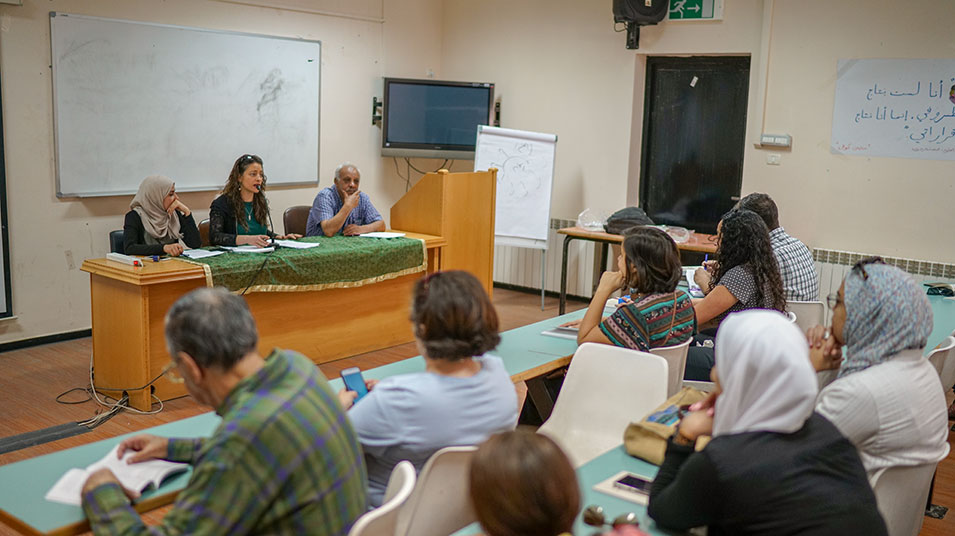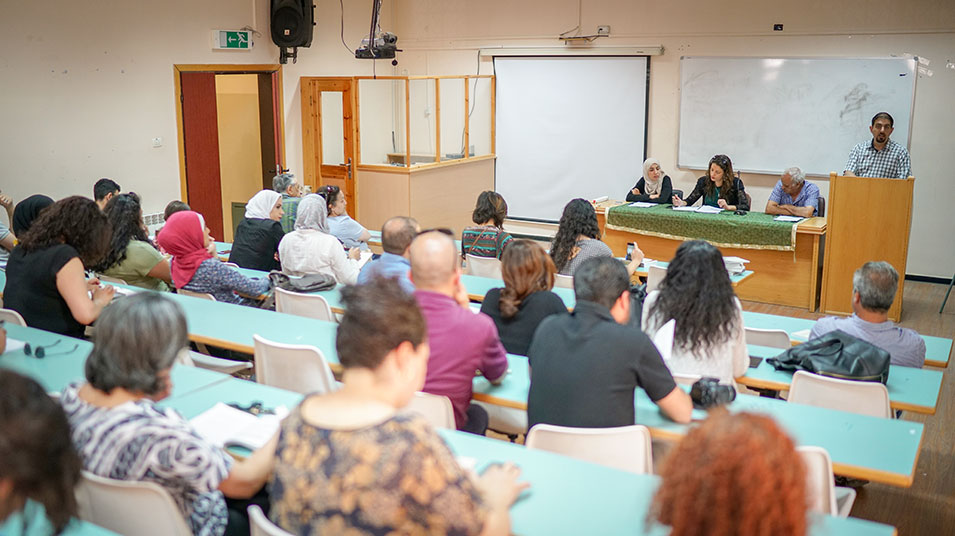Professors, students discuss study focusing on the realities and challenges of higher education in Palestine
The Institute of Women’s Studies and the Center for Development Studies at Birzeit University, together with the Bisan Center for Research and Development, organized a seminar to discuss a study analyzing the realities and challenges of higher education in Palestine, on May 22, 2019.
The study, carried out by Jibreel Mohammad and Hind Batta, two researchers at the Bisan research center, examines the realities of Palestinian higher education, its political and economic context, and its transformations.
Lena Meari, director of the Institute of Women’s Studies, led the discussion and commented on the study.
Obay Abodi, a representative of the Bisan research center, began his statement by highlighting the study as part of Bisan’s research plan that focuses on higher education. He added that the study emerged out of the center’s belief that national development necessitates the development of universities and the creation of an educated generation. Palestinian universities, he added, had lost their national approach since Oslo.
Batta presented the theoretical framework of the study, clarifying that it aims to review the realities of higher education in Palestine by examining the extent of governmental intervention in this sector and the burden of higher education on Palestinian families. She noted that the study explores these issues within the local and global socioeconomic and political conditions and the contexts of occupation, globalization and privatization, saying that another aim of the study is to regain the social role of higher education and its transformational goal.
Mohammad highlighted how the study focuses on the cost of higher education on Palestinian families, stating that providing the tuition fees for the 218,000 students currently enrolled at Palestinian higher education institutions costs their families 27 percent of their income.
Explaining the establishment of Palestinian universities, Mohammad said that these institutions aimed to push forward the national liberation movement, with the support and funding of the Palestine Liberation Organization, but the advent of the Palestinian Authority and the signing of the Oslo Accords meant that financial resources steadily decreased. This has led universities to look for other sources of funding from international agencies, such as the European Union, that fund academic programs and endeavors under special rules and conditions.








